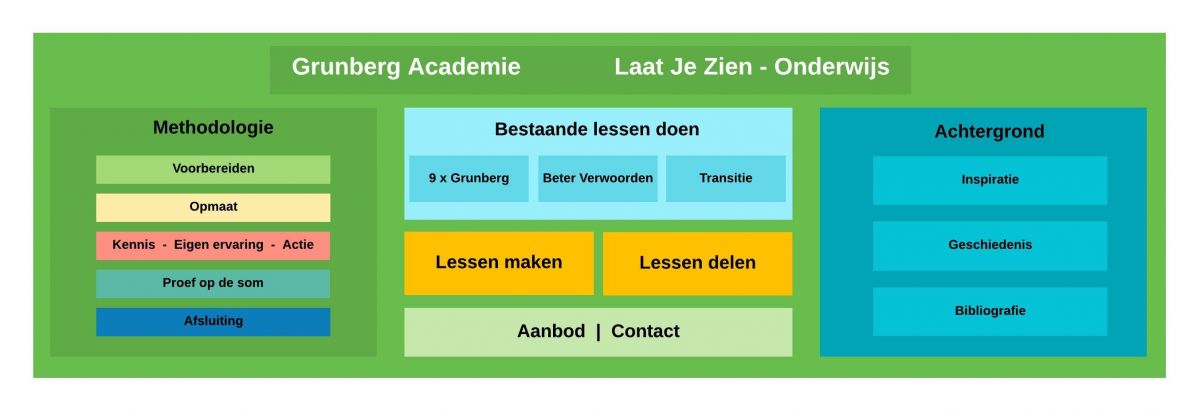Bibliografie

Bibliografie
- Aron Rubin, Judith (2016). Approaches to Art Therapy: Theory and Technique, New York, USA: Routledge
- Burkhard, Gudrun (1997). Taking Charge: Your Life Patterns and Their Meaning. Edinburgh, UK: Floris Books
- Case, Caroline & Dalley, Tessa (June 2004). The Handbook of Art Therapy Chapter 3, Abingdon-on-Thames, UK: Routledge
- Csikszentmihalyi, Mihaly (1996). Creativity: Flow and the Psychology of Discovery and Invention. New York, USA: HarperCollins Publishers, Inc.
- Dellensen, Peter & Lentz, Leo (Red.) (1987). Taaldrukken verder dan zeggen en schrijven, Handboek Taaldrukken. Baarn, NL: Uitgeverij Bekadidact
- Eden, Donna & Feinstein, David (2008). Energy Medicine: Balancing your Bodies Energies for optimal Health, Joy and Vitality. New York, USA: Penguin Group Inc.
- Edwards, Carolyn, Gandini, Lella y Forman, George (1998). The Hundred Languages of Children: The Reggio Emilia Approach – Advanced Reflections. Westport CT, USA: Ablex Publishing
- Egan, Kieran (1986). Teaching as Storytelling: an Alternative Approach to Teaching and Curriculum in the Elementary School. Chicago, USA: University of Chicago Press
- Egan, Kieran (2003), Start with what the student knows or with what the student can imagine? Phi Delta Kappan, 84(6), 443-445
- Egan, Kieran (2005). An Imaginative Approach to Teaching. San Francisco, USA: Jossey-Bass / A Wiley Imprint
- Ellis, Albert & Dryden, W. (1987). The Practice of Rational Emotive Therapy. New York, USA: Springer Publishing Company
- Faassen, van H., www.taalvormingentaaldrukken.nl
- Fernández Domínguez, M.a R. (2005). Más allá de la educación emocional. La formación para el crecimiento y desarrollo personal del profesorado. PRH como modelo de referencia. Revista Interuniversitaria de Formación del Profesorado, Vol. 19 (3), 195-251.
- Fernández Domínguez, M.a R., Palomero Pescador, J.E. y Teruel Melero, M.P. (ABRIL 2009) El desarrollo socioafectivo en la formación inicial de los maestros. Universidad De Zaragoza; Revista Electrónica Interuniversitaria de Formación del Profesorado, 12 (1), 33-50.
- Freinet, Celestine, De Moderne School, www.freinet.nl
- Gandini, Lella & Pope Edwards, Carolyn (Red.) (2001). Bambini: The Italian Approach to Infant/Toddler Care. New York, USA: Teachers College Press
- Glasser, William, MD (1969). Schools Without Failure. New York, USA: Harper & Row Publishers
- Glasser, William, MD (1988). Choice Theory in the Classroom. New York, USA: Harper & Row Publishers
- Glasser, William, MD (2011). Take Charge of your Life. Bloomington, USA: iUniverse, Inc.
- Kahn, Jennifer (2013/09/15). Can Emotional Intelligence Be Taught? The New York Times Magazine, NYTimes.com
- Koeman, Marianne (2013). La Didáctica de la Comunicación. La Paz, Bolivia: SNKP-Bolivia, Wisllita & Impulsis
- Korczak J., (2018). How to Love a Child: 1: And Other Selected Works Volume 1.Ilford, United Kingdom: Vallentine Mitchell & Co Ltd
- Kounin, Jacob Sebastian (1977). Discipline and Group Management in Classrooms. USA: Krieger Pub. Co.
- McNiff, Shaun (1992). Art as Medicine, Creating a Therapy of the Imagination, Boston, USA: Shambhala Publications, Inc.
- Montessori, Maria (1912). The Montessori Method: Scientific Pedagogy as Applied to Child Education in "The Children’s Houses" With Additions and Revisions by the Author. New York, USA: Frederick A. Stokes Company
- Phillips, D. C., & Soltis, J. F. (1998). Perspectives on learning. New York, USA: Teachers College Press
- Rathunde, Kevin and Csikszentmihalyi, Mihaly (2005) Middle School Students’ Motivation and Quality of Experience: A Comparison of Montessori and Traditional School Environments. American Journal of Education, Vol. 111, No. 3 (May 2005) (pp. 341-371)
- Taba, H., & Elkins, D. (1967) Teaching strategies for the culturally disadvantaged. Chicago, USA: Rand McNally
- Tough, Paul (2012). How Children Succeed: Grit, Curiosity, and the Hidden Power of Character. New York, USA: Houghton Mifflin Harcourt Publishing Company
- Scherder, E. (2017). Laat je hersenen niet zitten, Amsterdam: Athenaeum
- Sitskoorn, M. (2008). Het maakbare brein, Amsterdam: Prometheus
- Velthuis, C. (2017). Bres spelenboek, Utrecht: Kosmos Uitgevers
- Visch, Lucie, Zaat, Mirjam & Claessens Marleen (Red.) (1993). Werken met Taaldrukken; ervaringen en ideeën. Baarn, NL: Uitgeverij Bekadidact
- Vygotsky, L. S. (herziene druk 2012 van oorspronkelijke engelstalige versie uit 1962) Foreword by Alex Kozulin, Thought and Language, Cambridge, Mass., USA: MIT Press Ltd.
- Vygotsky, L. S. (1934) PDF Thinking and Speech
- Whitmore, Kathryn F. & Crowell, Caryl G. (1994). Inventing a Classroom, life in a bilingual whole language learning community. York, USA: Stenhouse Publishers